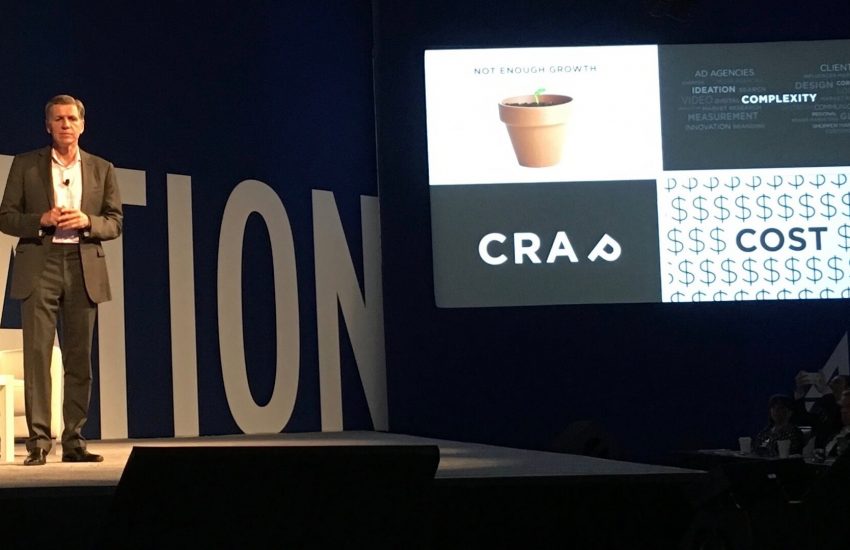
Procter & Gamble’s chief brand officer, Marc Pritchard.
When Marc Pritchard, the chief brand officer of one of the world’s most powerful marketers, Procter & Gamble, speaks, the entire ad industry listens.
In late January, Pritchard called for all digital media companies looking to win his brands’ ad dollars to open themselves to independent audits of their ad measurements, a call that may have been amplified by Facebook’s and Twitter’s measurement errors in 2016. Within a month of Pritchard’s speech at the Interactive Bureau’s Annual Leadership Meeting, both Facebook and Google’s YouTube agreed to have their platforms checked by independent auditor the Media Rating Council.
But agreeing to an audit is not the same as having been audited. So on Tuesday, in a keynote speech at the 4A’s Transformation conference in Los Angeles, Pritchard updated his call.
In addition to demanding accredited third-party measurement, advertisers and their agencies need to “get a timeline of completion from all [digital media companies], including the walled gardens,” Pritchard said, in a seeming nod to the duopoly of Facebook and Google.
Pritchard issued his own timeline of the levels of independent measurement that he’s looking for. He expects publishers first to open up to audits of their ads’ viewability, reach and frequency measurements. With that foundation, ad buyers and ad sellers will then be able to examine other ad metrics that attempt to better gauge an ad’s impact on a brand’s business.
When it comes to viewability, Pritchard also railed against the rise of various viewability standards. While the MRC’s viewability standard requires a video ad, for example, to be played 50 percent in view for at least one second, P&G’s rival, Unilever, and its agency, GroupM, have their own viewability standard that require a video ad to be played 100 percent in view for at least half of its length, but with sound and not automatically.
The influx of viewability options complicates digital ad buying and measurement. If digital ad sellers don’t adopt whatever viewability metrics a given marketer uses, that marketer must determine how to reconcile viewability measurements that were calculated differently. And thanks to a lack of consensus, digital ad sellers can take the opportunity to introduce their own standard or no standard.
“Adopt the minimum MRC standard and stop peddling your own version,” Pritchard said.
About The Author

